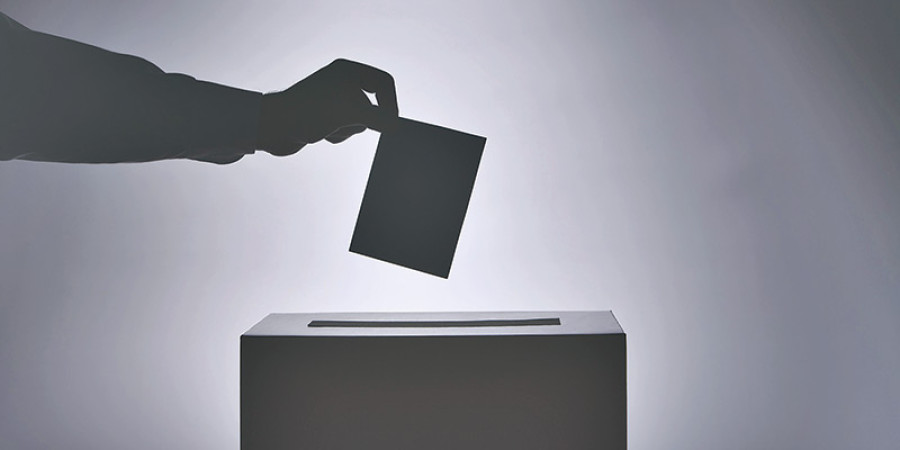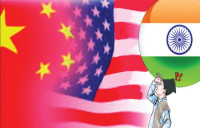Opinion
Nudges for betterment
The importance of behavioural sciences in economic decision-making has gained new momentum, especially after the Nobel Prize Committee conferred this year’s prize in Economic Sciences on Chicago Booth Professor Richard H Thaler, often credited as the father of behavioural economics.
Jaya Jung Mahat
The importance of behavioural sciences in economic decision-making has gained new momentum, especially after the Nobel Prize Committee conferred this year’s prize in Economic Sciences on Chicago Booth Professor Richard H Thaler, often credited as the father of behavioural economics. Thaler and other behavioural economists’ research findings and past experiments in the field and classroom—by experts and governments in diverse settings provide credible reasons to believe in the decisive role that could well be played by the behavioural economists to influence human and thus overall market behaviours, mostly for good reasons.
Generally, behavioural economists accompanied by support from behavioural finance professionals, study and apply nudges whenever possible for better outcomes. Nudge Theory, as outlined by Professors Richard H. Thaler and Cass Sunstein in their 2008 classic work “Nudge” explains how even a narrow shift in a policy results in people making decisions that are in the latter’s best interests. Though authors of this book provide major policy recommendation in the areas of health, finance and environment; Nudge Theory’s applications go far beyond these areas and incorporate politics as well.
Global experiences
Since the concept of Nudge came into existence, politicians and governments across the globe have applied this idea in their political campaigns and policy-making respectively to achieve superior outcomes. Some of the most successful examples that had attained desired outcomes by employing Nudge Theory include the UK pension policy, organ donation initiative in Spain and Barack Obama’s election campaigns in 2008 and subsequent policy-making works under his leadership.
Through nudges, the UK Government was able to increase numbers of private sector pension subscribers from just 2.7 million in 2012 to 7.7 million in 2016. Similarly, Spain is now the world leader in organ donation where a total of 4,818 organs were transplanted in 2016 alone. Likewise, the former US President Barack Obama took voluntary support of the Consortium of Behavioural Scientists, a team organised by UCLA Professor Craig Fox and comprised of Professors Richard H Thaler (Chicago), Michael Morris (Columbia), Robert Cialdini (Arizona State), Susan T Fiske (Princeton), Samuel L Popkin (UCSD), and Todd Rogers (Harvard), to run a successful Presidential election campaign. In addition, while Obama won his first term, he had also invited Professor Cass Sunstein as his policy advisor to formulate behavioural economic concepts for many government departments.
Rationale for Nudges
As Nepal prepares for two crucial elections, perhaps now is the right time for concerned authorities—voters, parties and the election commission—in the country to employ the Nudge Theory during upcoming federal and provincial elections. Considering the amount of paltering to talk and act deceitfully used by existing political parties, election contestants and voters in all the post-1990 elections, not only has Nepal failed to achieve greater political stability, but concerned parties and politicians have rarely been able to deliver their minimum commitments. To check whether our elected representatives have been able to work on their election manifestos, we do not need to go that far. Just consider one of the major issues raised by most of the politicians during the recently completed local elections—smart cities. The top-position candidates across most of the metropolises, sub-metropolises and municipalities had promised either to transform existing cities into smart cities or to create new smart cities in their neighbourhoods. However, almost after seven months of the completion of the first round of local elections, I do not see the new responsibility-bearers taking necessary steps to work on their committed promises. So, what went wrong? I think, aside from politicians and cadres from one party putting all the blame on other political parties, cadres and additional factors for their failures, we all know the obvious answer to this query—the political parties and the voters both have completely failed to elect the most deserving local level representatives to guide communities and the country towards all-encompassing prosperity.
In addition, the rise of considerable numbers of alternative forces in the country in recent years and the ever increasing public discontent towards the country’s old parties and the aged politicians also provide clear insights for all parties in Nepal on why they need to change their overall political strategies if they have to survive in the long run. Nudge Theory, but without paltering, could act as a crucial instrument to augment a responsible party’s position in the country.
In an average economy; the voters, the political parties and the Election Commission can apply nudges to influence election outcomes. In Nepal, unlike in advanced economies where voter turnout tends to remain low and as a consequence the concerned election regulating body often has to apply nudges to increase the numbers of voters, voter turnout stands at a comparatively better position. For example, voter turnout for the 2016 US Presidential Election was only 58 percent as compared to that figure for Nepal’s recently completed first, second and third rounds of local-level elections where voter turnout was 73.81 percent, 73.38 percent and 77 percent respectively. So, besides organising mass voter awareness campaigns, I do not think that Nepal’s Election Commission needs to apply nudges, at least for upcoming federal and provincial elections. However, if applied well while controlling for the crucial Social Media factors, voters and the political parties can definitely change the overall political landscape of the country for decades to come.
Voters are key
Voters are the most important part of an election in a democracy. They cannot only change the fate of a party or a politician but also the fate of that nation. However, in the case of Nepal, political developments and the people’s sufferings since we welcomed the democracy indicate that the voters had not been thoughtful enough to choose able representatives that could have governed the country differently. Thus, during upcoming elections and all the future elections, voters need to be very selective while voting. They should not elect an incompetent candidate only because the contestant is from a small/big party or is linked to the voters through personal/professional linkages. Rather they should vote for the most adept candidate who not only has a decent background but also carries sufficient skills to lead a community and the country and work on genuine issues. This way, voters can easily avoid falling prey to bad lawmakers while giving a clear mandate to the losing candidates and their parties to correct themselves for future elections.
Mapping the scope of nudges from political parties, I see new entrants having some advantages over the old ones. The accomplishments of the country’s major old parties are insignificant when their performance is assessed against the number of years they either led or served in the government. As a result, if voters are aware, they would perceive any nudges from these parties. Thus, my only suggestion to these parties and concerned contestants would be to honestly and openly accept their past mistakes while setting only achievable targets during election campaigns and also take reasonable steps to meet those objectives. The upcoming elections and the final results would also act as a testing phase for the alternative forces that are appearing for the first time in country’s parliamentary and assembly elections. As these latter groups of parties and the candidates do not have sufficient first-hand experience in politics, my suggestion for them would be to best utilise each party member’s accomplishments so far and their potentials to guide respective constituencies and the country. However, in both the cases, trying to prove oneself better by attempting to tear open others’ political agenda and public image would prove counterproductive.
- Mahat is a public policy researcher




 16.88°C Kathmandu
16.88°C Kathmandu










